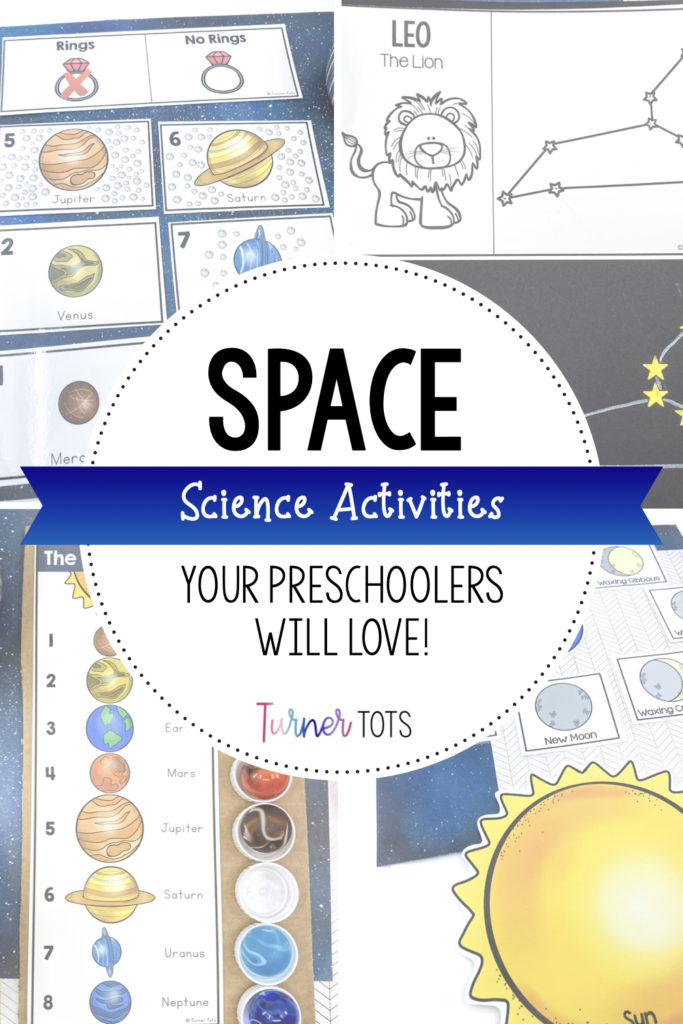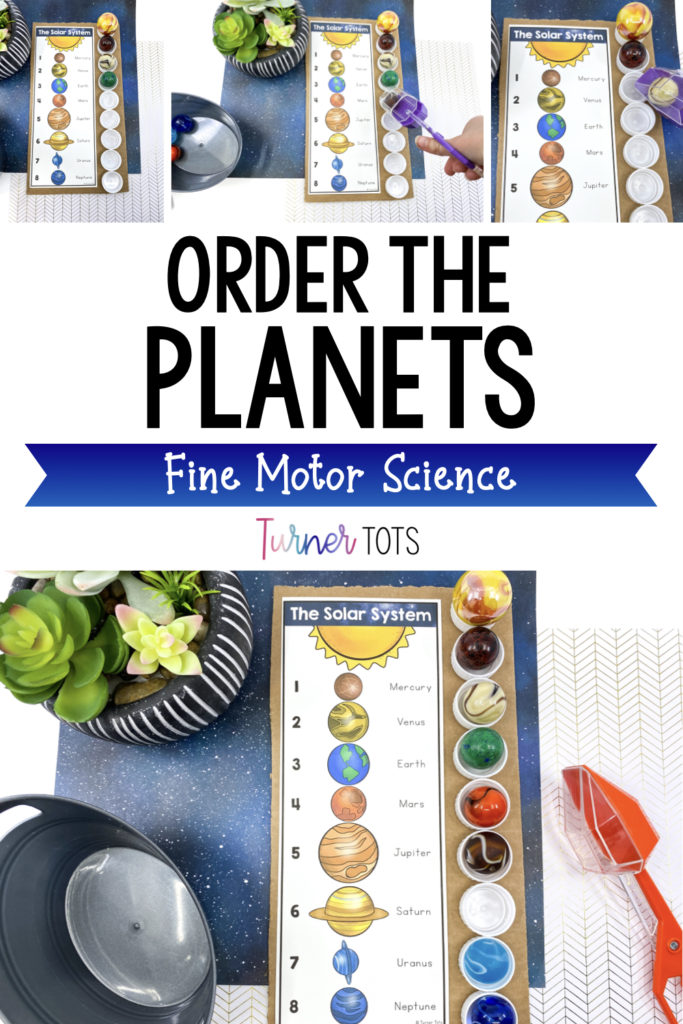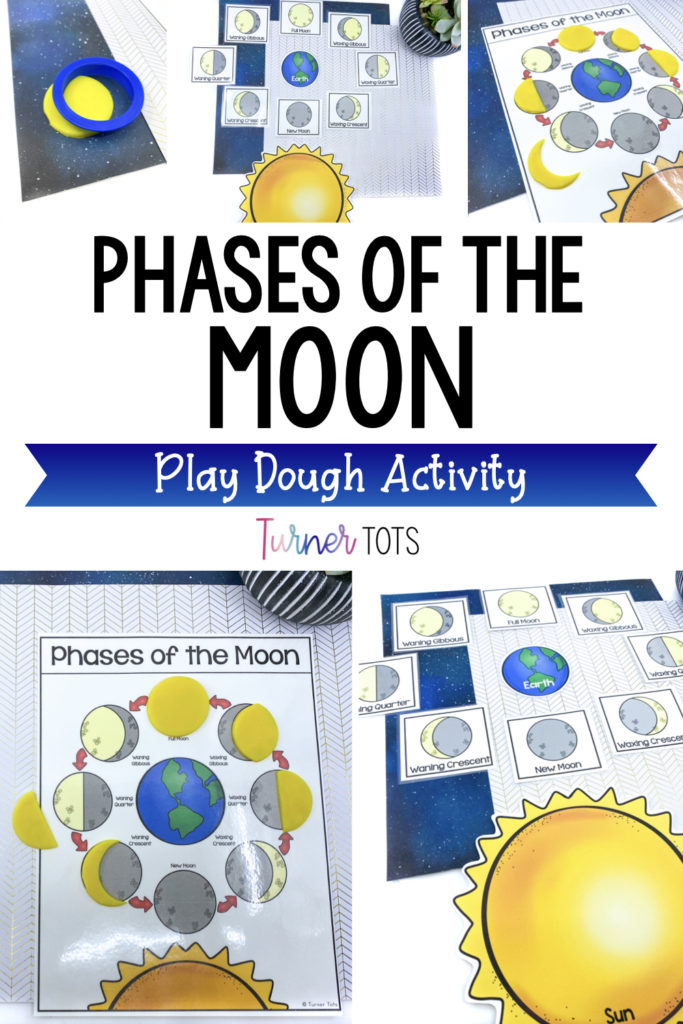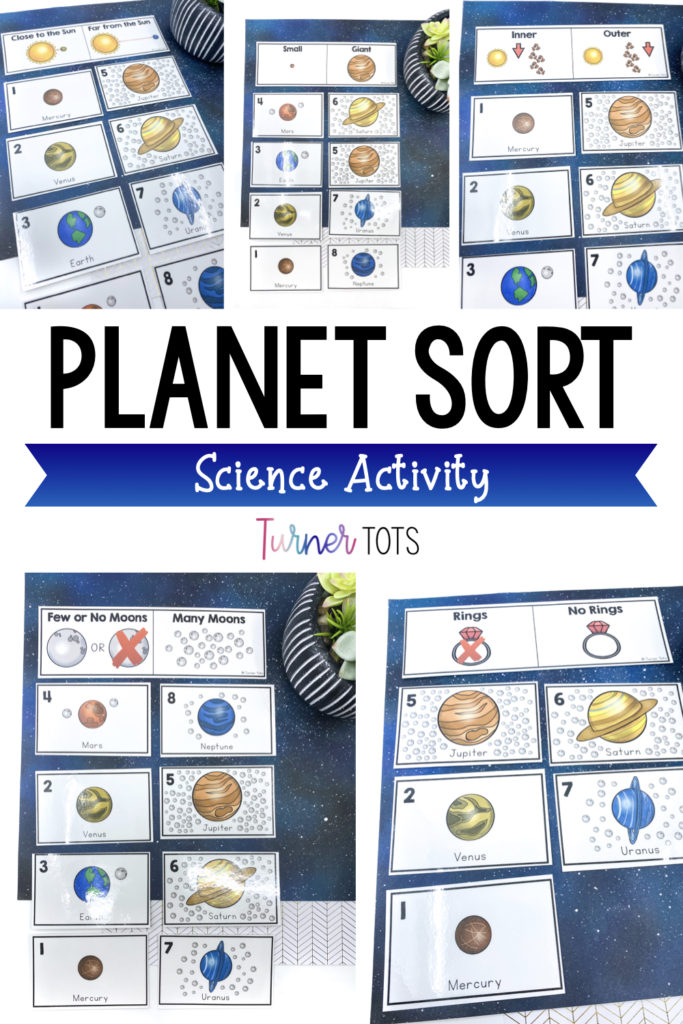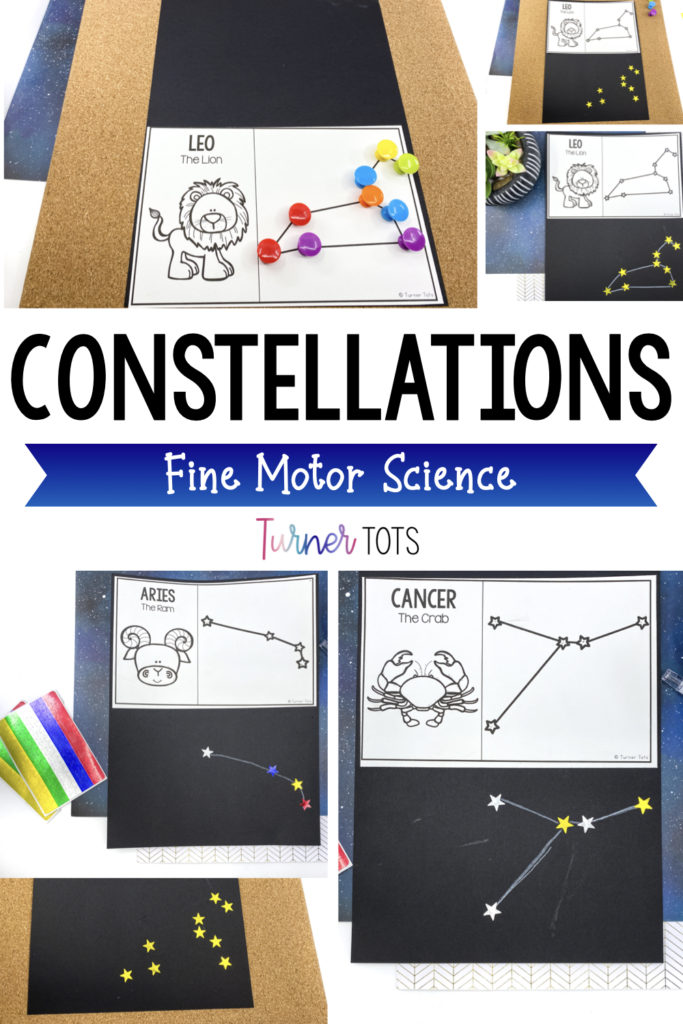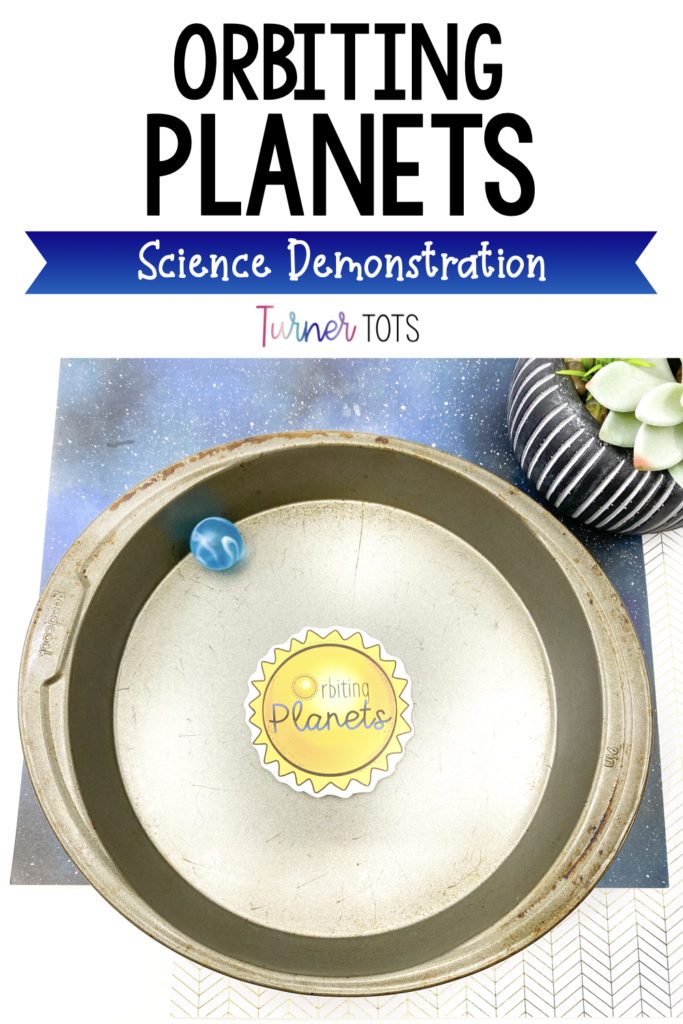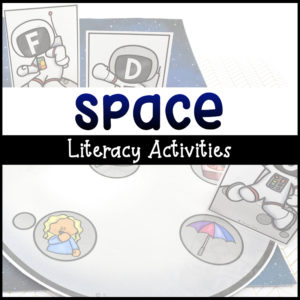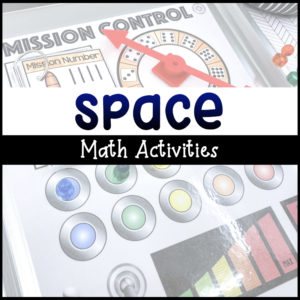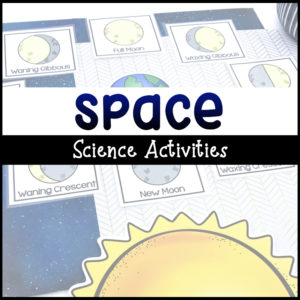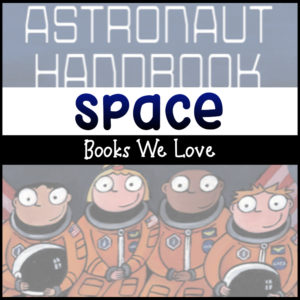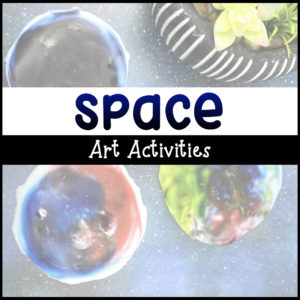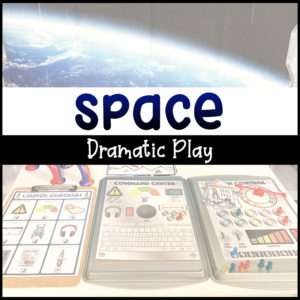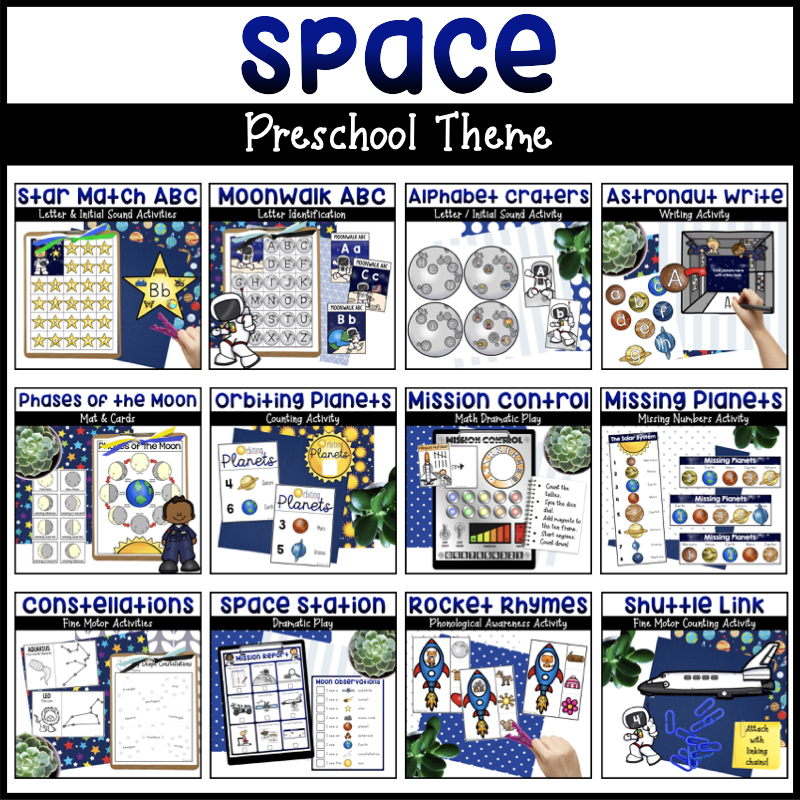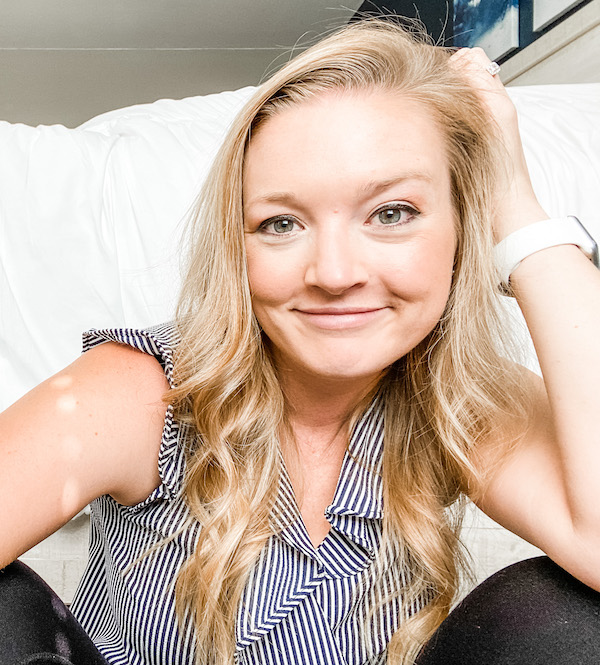What do I put in the science center this week? Many preschool teachers are often left wondering this question. Um, magnifying glasses. Um, pictures of planets. Just um. Well, for space week, let me make this easy for you. Here are some low-prep space science activities that you can easily implement during your space theme.
This post contains Amazon affiliate links, which means I earn a small commission from qualifying purchases at no extra cost to you by linking to Amazon.com. See the full disclosure here.
Space Lesson plans
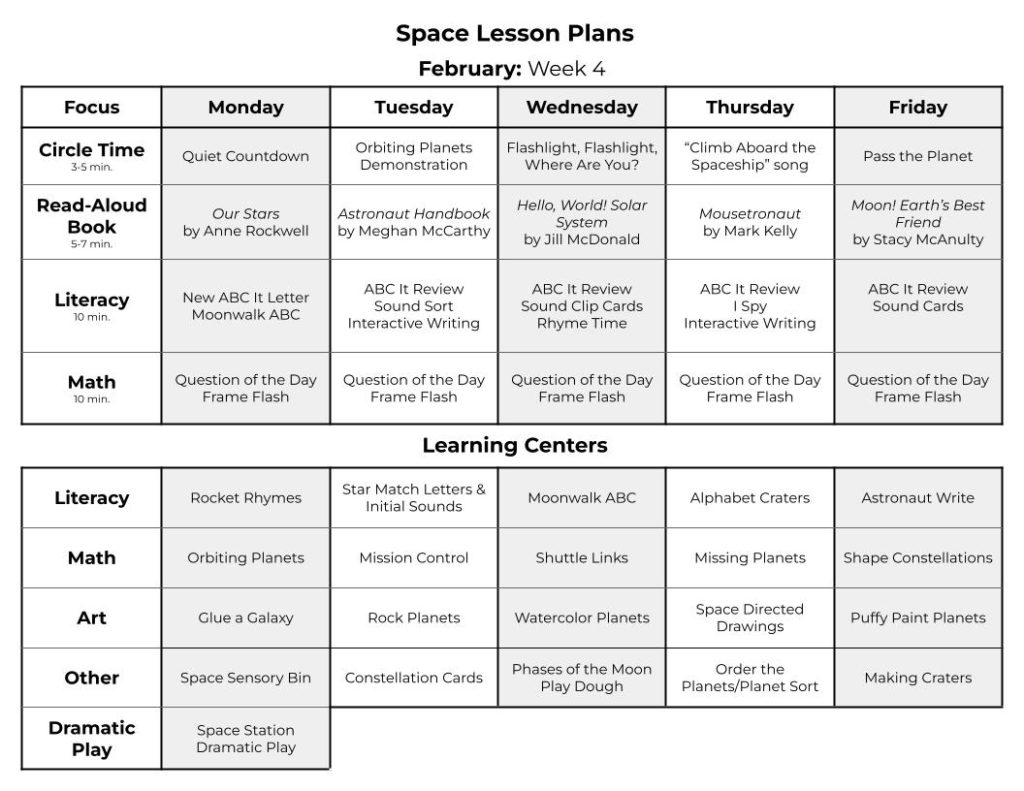
Order the Planets
Fine Motor Space Science
Now I can tell my husband that I was saving those milk caps for a reason. Ha! I used hot glue to stick 9 milk caps onto a piece of cardboard, straight up and down. Then, I taped the solar system poster, which includes the planets in order, onto the cardboard as well. I added in some planet marbles and scissor tongs to make this interactive and incorporate fine motor skills. The girls loved using the tongs and trying to figure out where each marble went!
Skills:
- observes and describes characteristics of earth and space
- uses materials such as pencils, paint brushes, eating utensils, and blunt scissors effectively
Phases of the Moon
Play Dough Activity
“Look, Mom! It’s the moon!” This is something I hear almost every day. Hang on while I fake my amazement. But really, if I do think about it, the moon is pretty cool. Just circling Earth and making tides and whatnot.
For our play dough activity this week, we made the different shapes of the moon by using a circle cookie cutter. Just slide the cookie cutter slightly over to make the crescent and gibbous moons. But don’t worry, we didn’t really get into all that technical stuff like waxing and waning. I just talked about half moons, full moons, and crescent moons and let the kids explore with play dough.
If you have older students, you can easily teach the advanced vocabulary for them to learn and have them use the cards to sequence around the Earth printout. This can even be used with Oreo cookies, but it’s far more difficult (and messy) to make the moons out of the cream. Fair warning!
Skills:
- make simple observations of the characteristics and movements of the sun, moon, stars, and clouds
Making Craters
Space Science Exploration
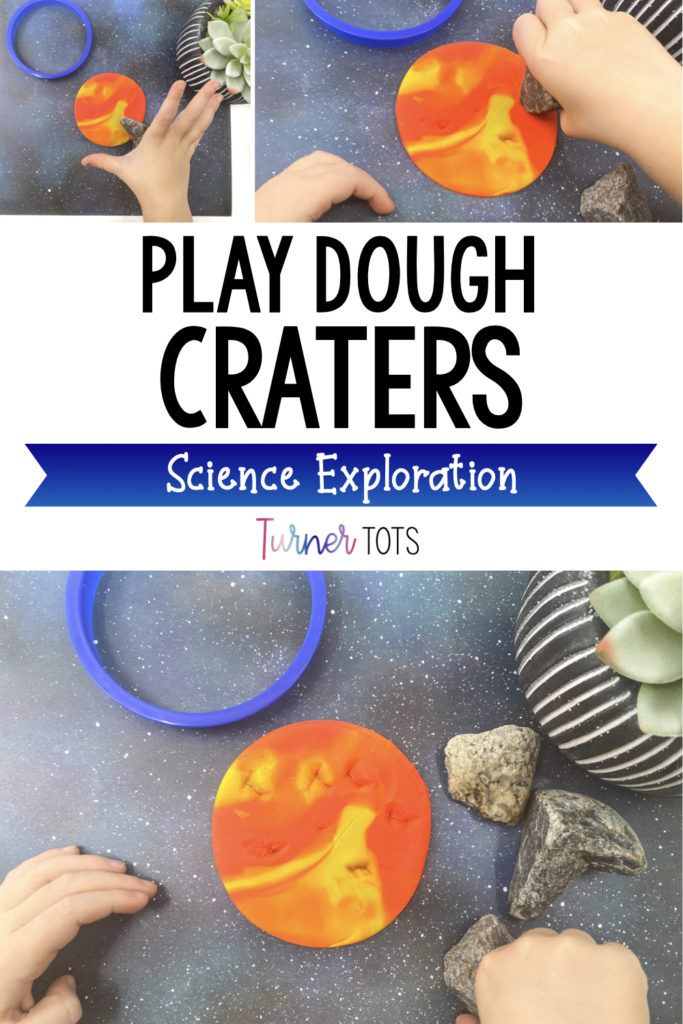
Two really big deals occurred during this next activity. One: The girls were allowed to mix different colors of play dough. Gasp! We mixed yellow and orange play dough to give the planets a swirling effect. Then, we cut out a planet using a large circle cookie cutter. Two: We were not only allowed to bring rocks inside, but we also were allowed to drop them. On purpose.
Sometimes my job of making learning fun is just too easy. Just saying.
As we dropped the rocks, we talked about our new vocabulary word: craters. Then, we took a closer look at a photograph of the moon to show that all of the dark marks were actually craters, formed when large rocks (meteors or asteroids) hit the moon.
Skills:
- makes age-appropriate, logical conclusions about investigations
Planet Sort
Sorting by Attributes
Did you know that the 4 inner planets and the 4 outer planets share many characteristics? This visual sort will show that to your little learners (or even your bigger learners).
This is how our planet sort went:
- no moon vs. moons (can easily be seen in the pictures)
- small vs. giant (also can be seen in the pictures)
- no rings vs. rings
- close to the sun vs. far from the sun (we used the numbers on the cards)
- hot vs. cold (we talked about what the temperature would feel like to be close to the sun vs. far from the sun)
- inner vs. outer (again, the planets closer to the sun are on the inside of the asteroid belt, while the planets farther from the sun are on the outside of the asteroid belt)
- rocky vs. gaseous (by this time, we had noticed a pattern, but we also talked about Earth being rocky)
This activity is by no means meant for mastery. Just to encourage observations and get those little brains thinking. It would be great to do as a whole class and then put it in your science center for your little ones to try on their own.
Skills:
- compares and contrasts attributes of objects
Making Constellations
Space Space Activities
Pinterest fail: We tried making constellations with marshmallows and pretzels. You know, the cute ones you see on Pinterest. Well, ours ended up just being a line of pretzels, looking nothing like the actual constellations. And honestly, the activity just turned into snack time.
Fast forward 2 years, and I decided to try a different approach to making constellations.
First, on top of a cork board, we placed a constellation card on the bottom half of a black piece of paper. Then, the kids inserted pushpins onto each of the star of the constellation. Next, we took out the pushpins and glued the constellation card on the top half of the black paper to use as a guide. Finally, the kids stuck star stickers on top of the holes and connected the dots with a white crayon.
And they actually look like constellations. Mission accomplished.
Skills:
- uses pincher grasp (index finger and thumb)
Orbiting Planets
Science Demonstration
Last, but not least, we learned about how the planets orbit the sun in our solar system using a simple demonstration. I taped a sun (from one of our math activities) into the center of a circular cake pan. Then, we placed a marble on the edge and slowly swirled it around, showing how a planet orbits the sun. After I talked about this new concept in the morning, I just set the cake pan in our science center for the kids to explore on their own.
Skills:
- uses senses to gather, explore, and interpret information
You might also like...
MORE Space Activities
No more searching for space activities for your science center this week. Just set up a few of these simple explorations for your little learners, and you are ready to go! Did you know if you buy the whole outer space bundle, you save 20%? Click below to check it out and let me know if there’s anything you need to make these activities work for your preschoolers!


